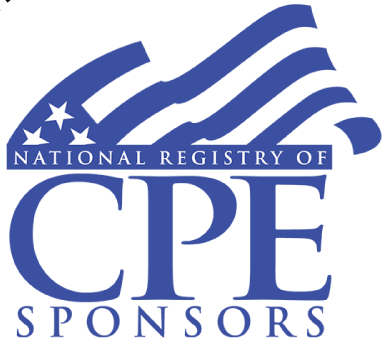Stay connected
Be the first to know about new programs, upcoming events, or other exciting opportunities happening at the University of Georgia by joining our mailing list.
About this course
What you’ll learn
Treasury Management will familiarize you with the legal and political considerations and parameters within which a treasury management system functions. In addition, you will learn about banking systems and how they affect local government treasury management and the concepts of contracting for banking services. As you progress through each of the lessons, you will be challenged with self-test questions and interactive exercises. Online consultations with a financial professional can be scheduled on request.
In 9 lessons, you will:
- recall accounting and reporting requirements for cash and investments
- discuss the individual cycle components of the treasury management process
- prepare a cash flow forecast
- recall Georgia Law regarding investments and how policy differs from law
- recognize the importance of internal controls relating to treasury management, including staffing and supervision
Learning objectives
This dynamic course has a detailed curriculum consisting of 9 lessons:
Lesson 1 — Treasury Management
- Recall the management of cash in the treasury management process.
- Identify the two cycles and the components of the treasury management process.
- Recognize the goals of a treasury manager.
Lesson 2 — Banking Services
- Define the various banking service categories.
- Recognize the steps in the competitive bid process.
Lesson 3 — Forecasting
- Recall the steps involved in preparing a cash flow forecast.
- Define the moving average method forecasting technique.
- Prepare a basic cash flow forecast.
Lesson 4 — Collections
- Recognize the types of collection methods available.
- Recall the types of collection strategies.
- Define float and identify methods to reduce float on collections.
Lesson 5 — Disbursements
- Cite the major goal of a disbursement system and the goal of the treasury manager in the area of disbursements.
- Identify the advantages of centralized disbursements.
- Identify the types and characteristics of disbursements.
- List the components of disbursement float.
- Recognize how the use of electronic banking services optimizes disbursements.
Lesson 6 — Investments
- Differentiate between treasury management law and policy.
- Recall the components of Georgia law related to investments.
- Recognize various types of investment instruments.
Lesson 7 — Internal Controls
- Recognize the importance of developing policies and procedures that include strong internal controls.
- Recall the basic concepts of good internal controls to treasury management.
Lesson 8 — Staffing and Supervision
- Recognize the importance of proper staffing and supervision in treasury management.
- Recall the job of the treasury manager and the different areas of responsibility.
Lesson 9 — Accounting and Reporting
- Define risk terms.
- Recall depositor risk disclosure requirements.
- Recognize the different types of risks associated with investments.
Who should attend?
- Local Government Finance Professionals and Paraprofessionals who want to enhance their career skills and professional development opportunities through the Georgia Finance Officer Certification Program.
- Local government accounting and financial reporting professionals and others responsible for oversight and administration of a local government’s finances.
- Governmental Professionals with previous private sector experience who want to gain Treasury Management knowledge.
- State and Local Governmental employees who require knowledge of Treasury Management.
Continuing Education Information
The University of Georgia will award 1.0 Continuing Education Units (CEUs) or 12.0 CPEs upon successful completion of this course. A University of Georgia CEU (Opens in a new window) transcripts is available at any time upon written request.
NASBA Information
Field of Study: Finance
Delivery Method: QAS Self Study
Advance Preparation: None
Program Level: Basic
Prerequisites: None
Requirements & policies
Schedule
Start anytime and complete the course’s required online quizzes and exercises within 60 days of receiving the “Welcome” email with course URL, username and password information.
Fees & funding information
$369 (US Funds) — Residents of Georgia
$409 (US Funds) — Non-residents of Georgia
$50 (US Funds) — One-Month Extension (Only one extension is granted per participant.)
Prepayment is required to be registered. Prices listed are per person.
Cancellation or refund
We will issue a refund, minus a $50 processing fee, if you have not accessed the online course at all. All cancellation and refund requests must be sent via email to gc-student@uga.edu no later than seven (7) days after your course access information is issued.
Certification
Treasury Management meets a Level I core course requirement for local Georgia governmental employees in the Finance Officer Certification Program.
Prerequisites
There are no prerequisites for enrolling in the course.
Textbooks
None. A link to the textbook is provided in the course. You can choose to print out the textbook or complete the reading assignment online. Everything you need is built within the online course platform.
Organizations
Supporting associations
This course is approved by the National Association of State Boards of Accountancy

Prices, course details, dates, and times are subject to change.
Contact us + FAQs
FAQs
View the most frequent questions asked by our learners
Financial and Military Assistance
Find out which programs are eligible for assistance
Accommodations
View our accommodation policy






